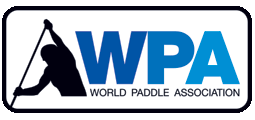PFD Laws – SUP or Paddleboards Now Classified as Vessels
The United States Coast Guard (USCG) has officially classified stand up paddleboards (SUP) as a vessel. With the rapid growth of SUP in recent years on the West and East coast of the United States, the Coast Guard recently classified “paddleboards”, meaning SUP’s as “vessels.” SUP, the newly classified vessels must comply with federal Navigation Rules and “carriage” requirements when operated beyond the limits of a swimming, surfing or bathing area. Adult stand-up paddlers are required to have a USCG-approved life jacket also known as Personal Floatation Device (PFD, Type III) for each person, a sound signaling device (whistle), visual distress signal and navigation light (flashlight).
With this said there are many details with the new PFD law that most cities and harbors are now enforcing. All persons 12 years old and under are required to wear a USCG-approved life jacket or PFD however all operators over 12 years of age are only required to have a Type III adult USCG-approved life jacket or PFD either attached to the vessel or on the operators person. As stated in the first paragraph, SUP operators are not required to wear or have a PFD if you are in the surf line. So, SUP surfers are not required to wear a PFD. The WPA will be inquiring for an exception with the new PFD law with the USCG. The letter will state “if the stand up paddleboard operator is tethered (wearing a leash) to their board or vessel, can this be deemed as an alternate or replacement for having a PFD.” Most would feel that a stock (12’6”) or larger SUP board would be a better floatation device as long as the operator were attached to the vessel. How much easier would it be to administer CPR or first aid to a victim or person in need on a SUP board rather than in the water?
The same requirements apply to kayaks and other manually propelled vessels of similar size. Stand-up paddleboards are exempt from hull identification number and registration requirements. Please know that motor and large sail vessels have the right of way over paddleboards, kayaks and SUP crafts. It is your responsibility to know the rules of the water, so be safe considerate of other large vessels. The Harbor Patrol will continue to educate and enforce the new law with all stand-up paddlers.

